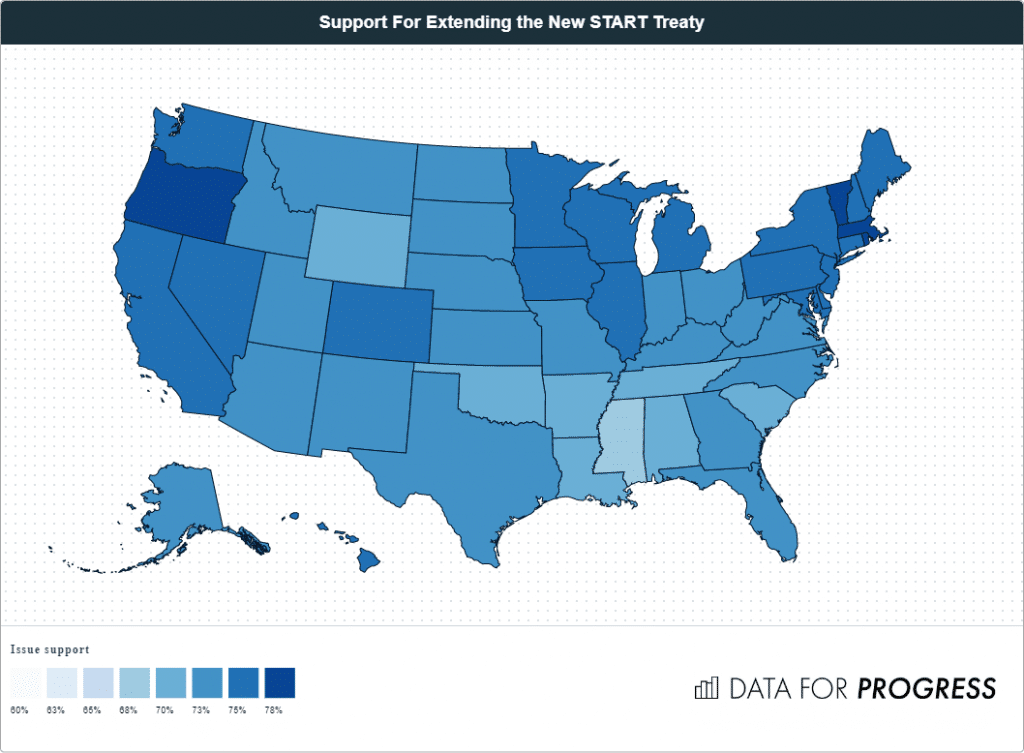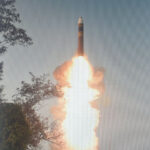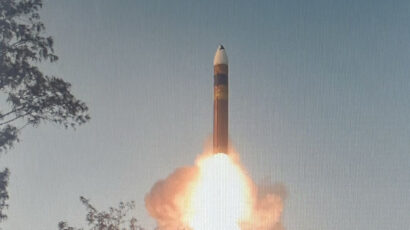The American public supports New START. Will the Trump administration?
By John Krzyzaniak | September 13, 2019

For anyone who thought endorsing arms control was controversial or partisan, a recent survey shows impressive public support for extending the New START treaty, which is otherwise set to expire in 2021.
The think tank Data for Progress partnered with the data science firm Civis Analytics to conduct surveys on sixteen different policies that the organization collectively dubs “The New Progressive Agenda.” The list includes a host of domestic policies such as paid family leave and automatic voter registration, but also foreign policy issues such as ending arms sales to Saudi Arabia and extending the New START treaty.
The results show that across the United States, support for extending New START for five years beyond 2021 exceeds 70 percent in every state and even reaches 80 percent in Vermont, where the policy is most popular. Interestingly, the project also offers more granular information about public support at the congressional district level, making it a useful tool for 2020 House candidates.
At a national level, the total sample for the New START question was 5,155 respondents. Fully 66 percent of those who expressed an opinion supported extension, with a margin of error of +/- 1.4 percent.
One striking aspect of the data is that the pollsters generated breakdown estimates for support based on party affiliation. They estimate that approximately two-thirds of those who voted for Donald Trump in 2016 would approve of extending the treaty.
However, readers should be aware of a few caveats. First, the pollsters did not actually conduct individual surveys in each and every state, let alone every congressional district. Instead, they conducted a national survey and then used statistical techniques to estimate the results for each district based on a smaller sample. Ditto for the party-line breakdowns: These are estimates based on limited data.
Second, the analysis omits “don’t know” responses. Although there are strong reasons for that omission, expressing approval this way generally yields higher percentages than if the results were expressed in terms of three-way support, with “don’t know” responses included. For example, in the case of Mississippi, the two-way breakdown is 70 percent support versus 30 percent oppose. But the three-way breakdown would be 47 percent support, 20 percent oppose, and 33 percent don’t know.
Third, and perhaps most important, poll results depend on how questions are asked, and what context is provided. Adam Berinsky, director of MIT’s Political Experiments Research Lab, wrote in an email to the Bulletin that “the results are heavily dependent on the detailed question asked—almost certainly very few people are familiar with [New] START, so the specific question wording and the arguments contained within are all the information they have about it.” Consequently, Berinsky cautions, the results may not say much about public support for New START as a policy.
With all that said, the survey results align well with polls conducted in late 2010, as the treaty was awaiting Senate ratification. For example, an NBC News/Wall Street Journal poll showed that nationally, 70 percent of respondents favored ratification. A CBS poll found 82 percent national support. In terms of partisan breakdown, a CNN poll indicated that 87 percent of Democrats, 72 percent of independents, and 59 percent of Republicans approved of treaty ratification. Ultimately, the US Senate consented to ratification by a vote of 71 to 26.
Of course, it is no wonder that New START is popular; it has been indisputably effective at reducing US and Russian nuclear forces, improving transparency, and reducing nuclear risk. What’s more, both sides have faithfully complied with the treaty. In the Data for Progress press release, Michael McFaul, former US ambassador to Russia, wrote that a treaty extension—which Russian President Putin has indicated he supports and which US President Trump could sign without congressional involvement—is a “no-brainer.”
However, the Trump administration may not agree. It has yet to take a firm stance on New START, but it did withdraw from another major arms control pact, the Intermediate-range Nuclear Forces Treaty, in August. Further, the fact that the Obama administration negotiated New START is, in Trump’s eyes, a strike against it. Nevertheless, things may be looking up. John Bolton, perhaps the most vocal critic of arms control agreements in the Trump administration, has been ousted from his position as national security advisor. His departure prompted almost immediate optimism among some Russian lawmakers that the prospects for treaty extension had improved. For now though, with less than 17 months before the treaty expires, the ball is up in the air and the clock is ticking.
Publication Name: Data for Progress
To read what we're reading, click here
Together, we make the world safer.
The Bulletin elevates expert voices above the noise. But as an independent nonprofit organization, our operations depend on the support of readers like you. Help us continue to deliver quality journalism that holds leaders accountable. Your support of our work at any level is important. In return, we promise our coverage will be understandable, influential, vigilant, solution-oriented, and fair-minded. Together we can make a difference.
Keywords: New START, arms control, public opinion
Topics: Nuclear Weapons, What We’re Reading
















